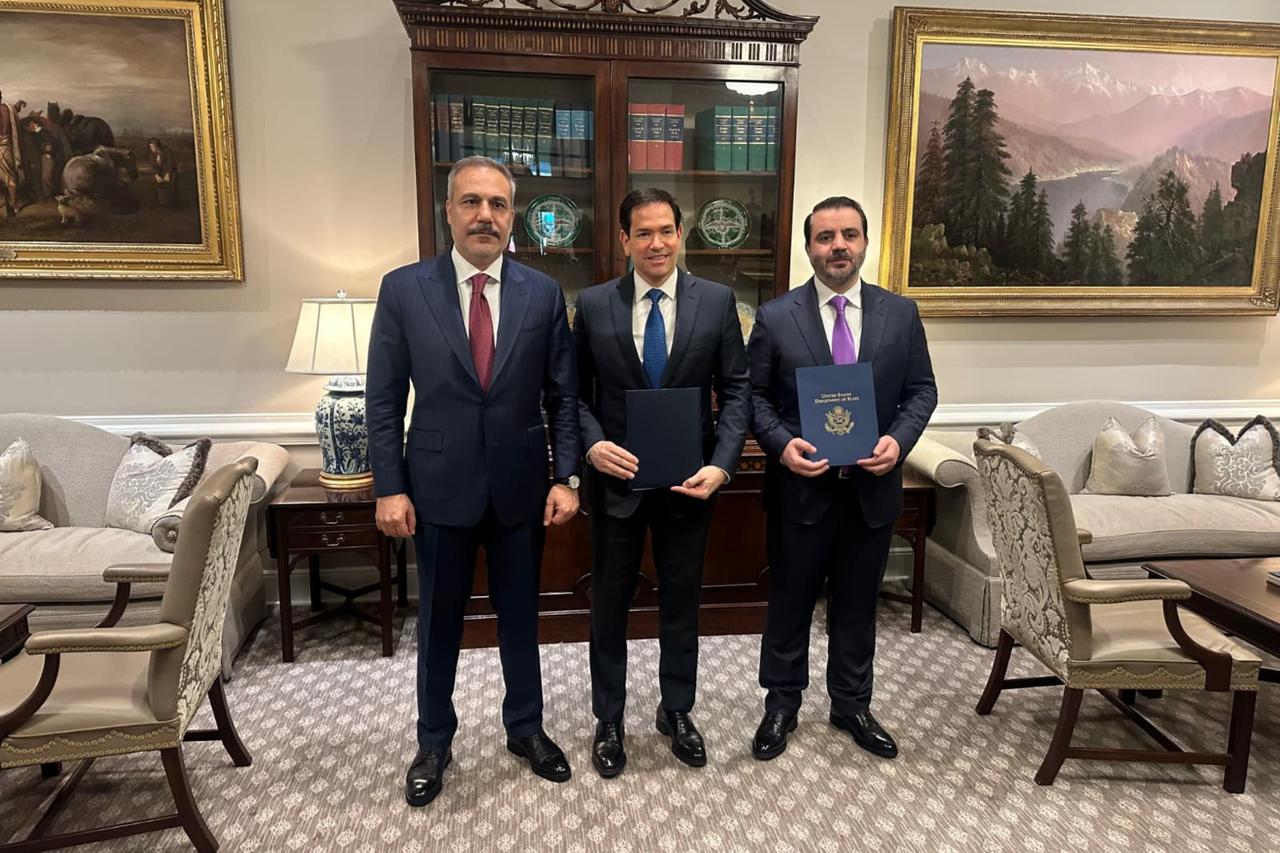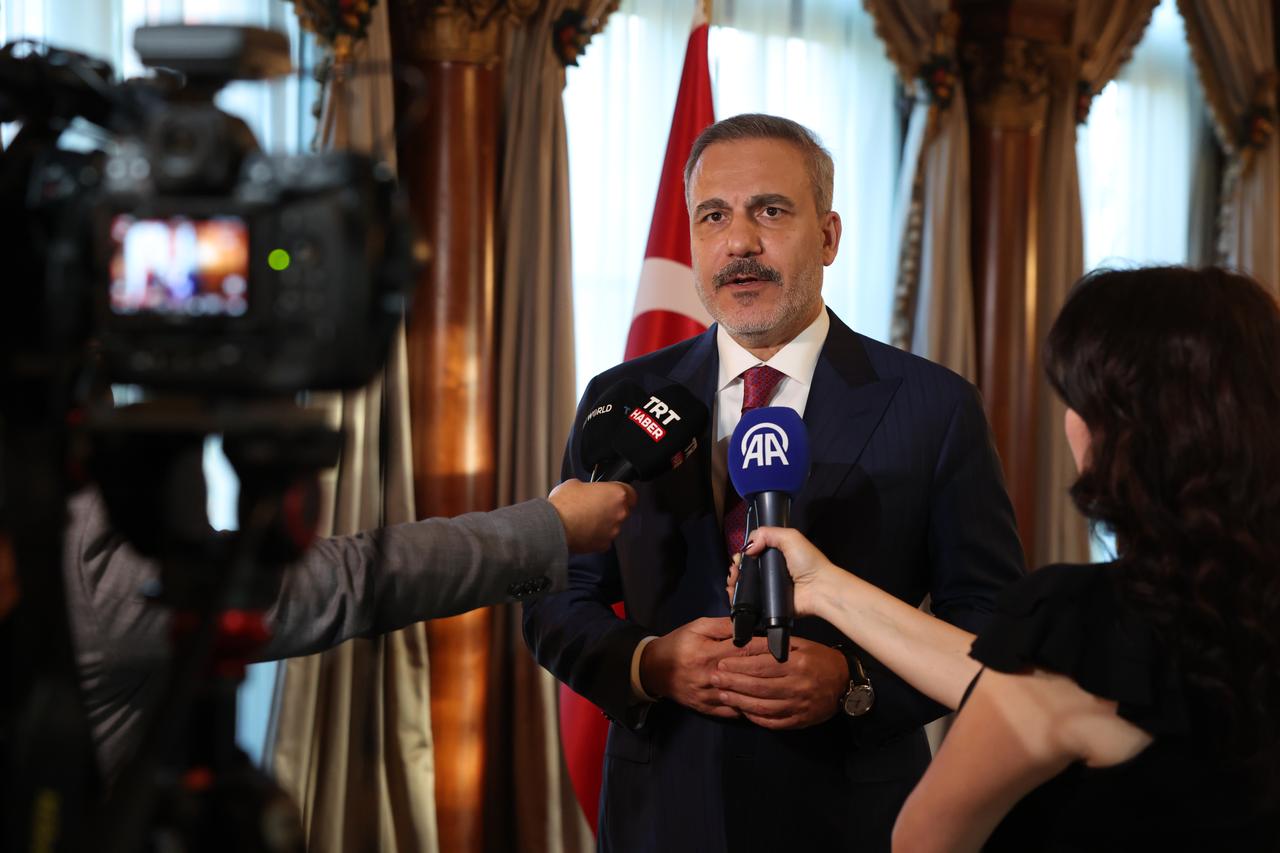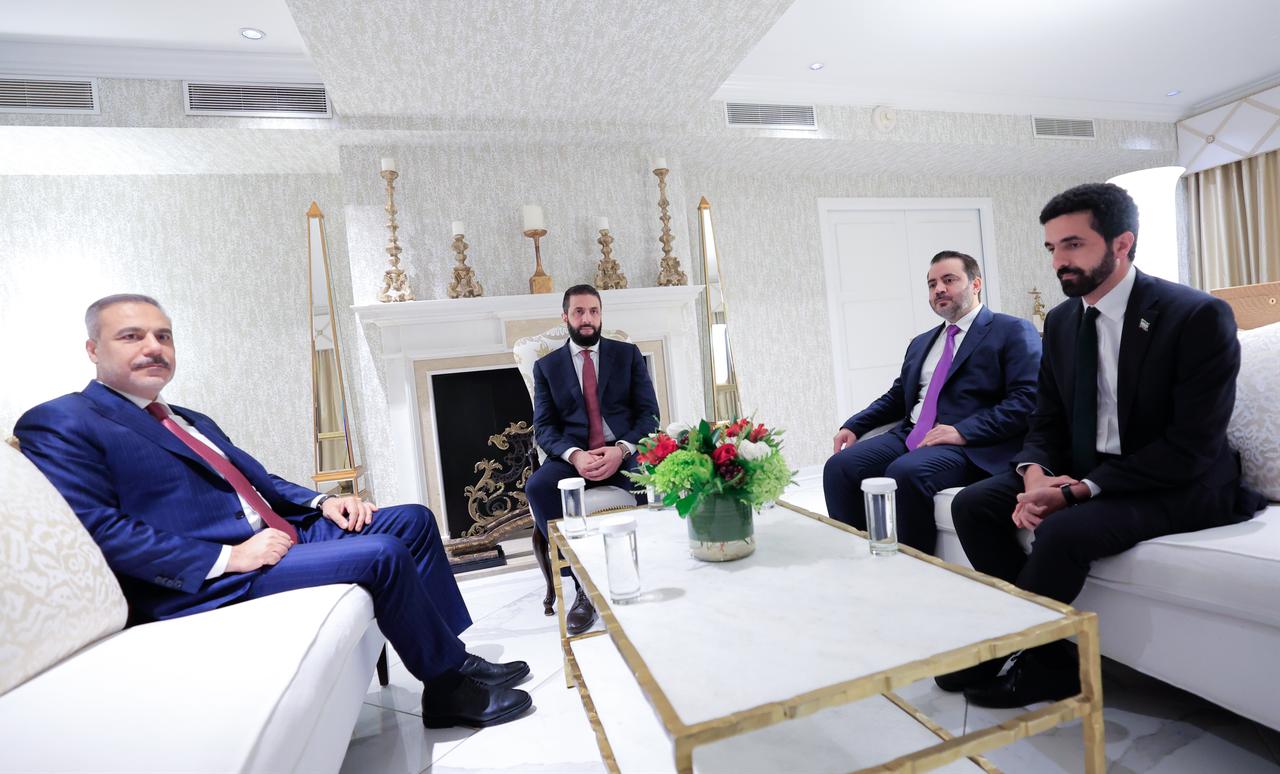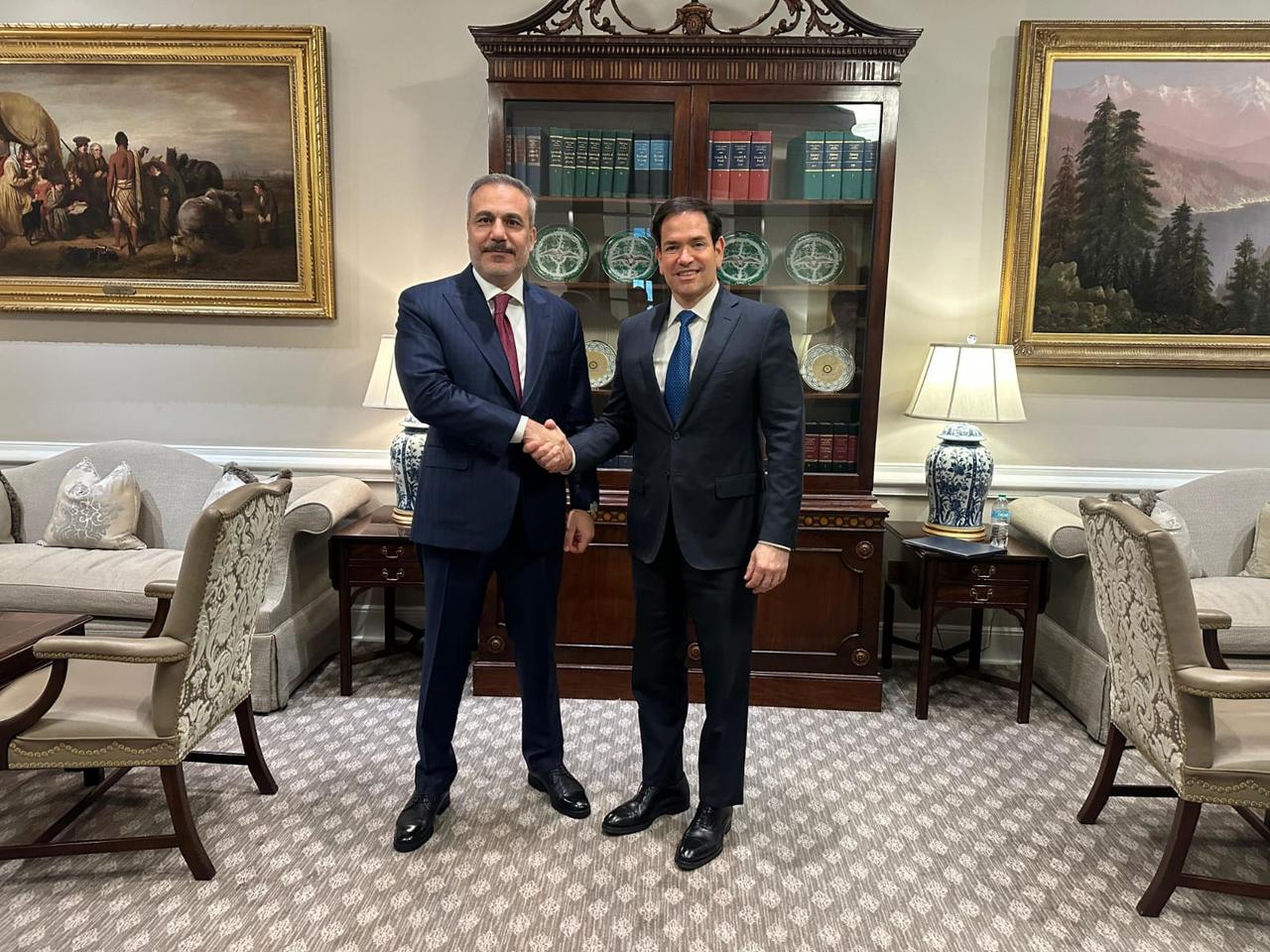
Foreign Minister Hakan Fidan on Monday held high-level talks in Washington, D.C., including a meeting with Syrian President Ahmed al-Sharaa and senior U.S. officials, where he presented Türkiye’s views on Syria, Gaza, and several other key regional issues.
Fidan said Ankara used the visit to detail its position on Syria's political and territorial integrity, ongoing sanctions, and the situation in conflict-affected areas.
“How can the problem areas, particularly in southern and northern Syria and other regions, be managed more effectively? How can work be done on the Caesar Act? We had the opportunity to examine these issues in detail and present our views and positions,” he told Turkish media, including Anadolu Agency, in the U.S. capital.

The visit coincided with the first White House appearance by a Syrian president since the country's independence nearly 80 years ago.
Earlier Monday, President al-Sharaa arrived for talks with U.S. President Donald Trump and key members of his administration.
Fidan said he was also invited to the White House, where he joined U.S. Secretary of State Marco Rubio, Vice President JD Vance, Middle East Envoy Steve Witkoff, U.S. Ambassador to Türkiye and Special Envoy for Syria Tom Barrack, and Syrian Foreign Minister Asaad al-Shaibani.
“Of course, my presence at the White House today coincided with the visit of Syrian President Ahmed al-Sharaa,” Fidan said. “I was also present. We conveyed our president’s (Recep Tayyip Erdogan) greetings and best wishes to Trump.
We then had the opportunity to discuss Türkiye’s general views on Syria, opportunities for cooperation with the U.S., and numerous issues related to Syria’s development, unity, solidarity, peace and regional security.”
Meanwhile, Syrian President al-Sharaa on Monday received Turkish Foreign Minister Hakan Fidan in the US for talks.
However, no additional information was shared about the closed-door meeting in Washington, DC.

Fidan also underscored Türkiye’s push to permanently lift the U.S. sanctions imposed under the Caesar Syria Civilian Protection Act to help restart Syria’s economy.
“Some limited exemptions were made using presidential powers, paving the way for certain economic activities,” he said.
“But the law needs to be completely repealed and re-passed by Congress to bring it to a point where presidential exemptions are no longer necessary.”
Fidan welcomed the administration’s alignment on the issue, saying, “It was incredibly important that the administration shared the same view and made such a recommendation to Congress. Therefore, I believe both al-Sharaa’s statements and our statements are of paramount importance.”
He also warned of increasing risks to Syria’s territorial unity, citing unrest in southern Sweida, areas controlled by the PKK/YPG—referred to by the U.S. as the SDF—in the northeast, and instability in the north.
“If the problems here aren’t managed carefully, there’s a possibility of a problem affecting the country’s entire regional integrity and territorial integrity,” he said. “It’s certainly important that the Americans understand this, and I see they do.”
Fidan said the goal must be a unified Syria where all ethnic and religious groups are safe and no actor poses a threat to others.

Turning to the Gaza Strip, Fidan said a proposed U.N. Security Council resolution and efforts to maintain the ceasefire were central topics in his Washington meetings.
“There is a group of actors who believe that such a Council resolution is necessary for the implementation of the subsequent stages of the announced comprehensive peace agreement,” he said.
Last week, the U.S. mission to the U.N. said Ambassador Michael Waltz had convened a high-level meeting with the 10 elected Security Council members, as well as Egypt, Qatar, Saudi Arabia, Türkiye, and the United Arab Emirates, to discuss the draft resolution.
The proposal reportedly supports the establishment of a Board of Peace and authorizes the deployment of an International Stabilization Force—both central pillars of Trump’s 20-point Gaza peace plan.
“As Türkiye, we see it as our number one priority to ensure that all stages of the peace plan are implemented in a way that benefits everyone, that the genocide is stopped, and that humanitarian aid begins,” Fidan said.
He confirmed that Türkiye’s evaluation of the resolution was ongoing.
“As you know, we hosted a meeting in Istanbul last week... What should be the fundamental parameters of an international decision to be issued by the UN Security Council? Because so many different actors have different perspectives and priorities. So bringing these together can be a bit challenging,” he said.
“We’re closely following and working with our colleagues. We’re speaking with our partners. In my meetings with various actors at the White House throughout the day-to-day, we had the opportunity to express our views on the matter at various levels," he added.
Fidan said discussions also covered the Russia-Ukraine war and Türkiye’s possible role in mediation.
“What can be done at this critical juncture to end this war? What role can Türkiye play? How can we work with the U.S. on this issue? Our president has some views on this matter,” he said.
He added that Ankara and Washington also exchanged views extensively on the stalled nuclear negotiations with Iran and that he has since briefed Erdogan on all the outcomes of the meetings.